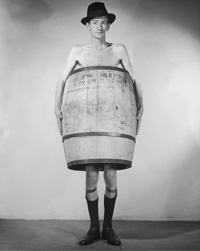Why Do So Many Divorce Litigants Represent Themselves?
In recent years, an increasing number of people seeking divorces have dispensed with lawyers. What explains this trend? Judi McMullen and Debra Oswald set out to find some answers by examining a random sample of 567 divorce cases from Waukesha, Wisconsin. Consistent with national trends, they found high percentages of pro se litigants (43.9 percent of husbands and 37.7 percent of wives). Given the relative prosperity of Waukesha County, these high rates of self-representation are probably not just a matter of litigants not being able to afford a lawyer. Rather, the data showed that people tended to represent themselves in the simpler sorts of cases. When complicating factors like minor children were present, litigants were more likely to obtain counsel. According to McMullen and Oswald, “This suggests that divorce litigants have good, common sense notions about when self-representation is feasible and when it is not.”
The data were not as clear regarding the effects of hiring counsel. For instance, cases with represented clients took longer to complete, but this may simply reflect the fact that these cases tended to be more complex.
McMullen and Oswald reported their research in a recently published article entitled “Why Do We Need a Lawyer? An Empirical Study of Divorce Cases,” which appeared at 12 J. Law & Fam. Studies 57 (2010). The article is also available here on SSRN.

